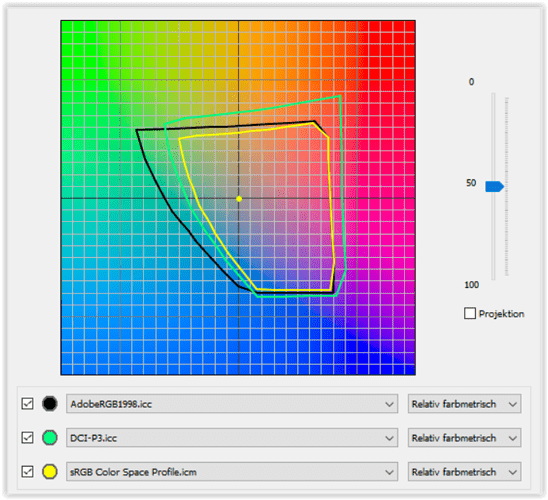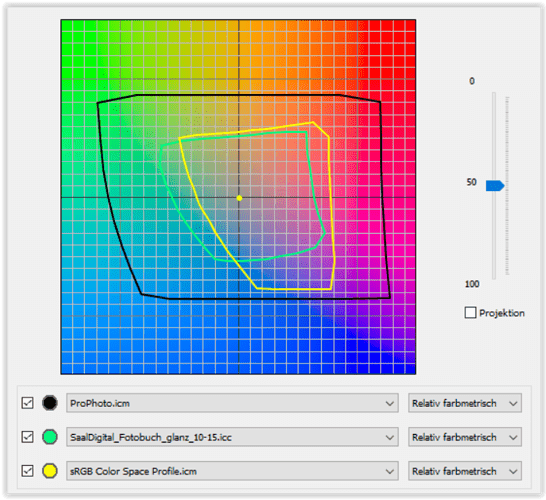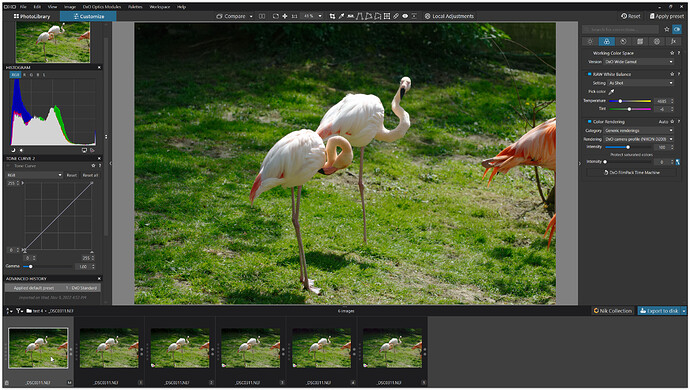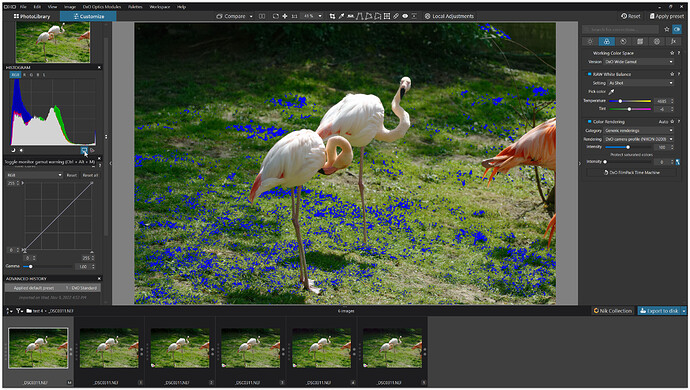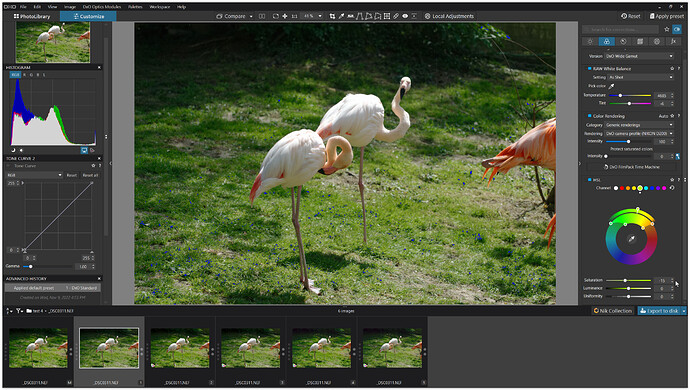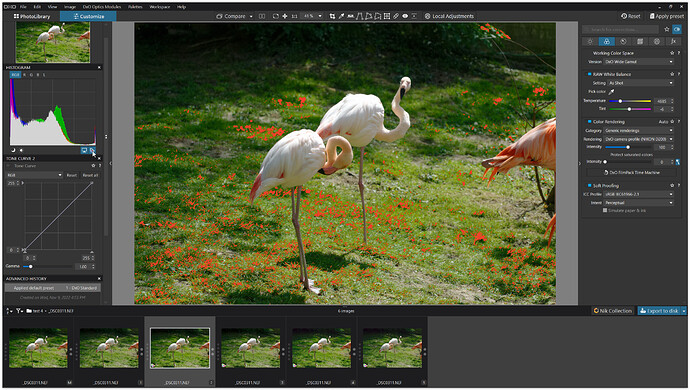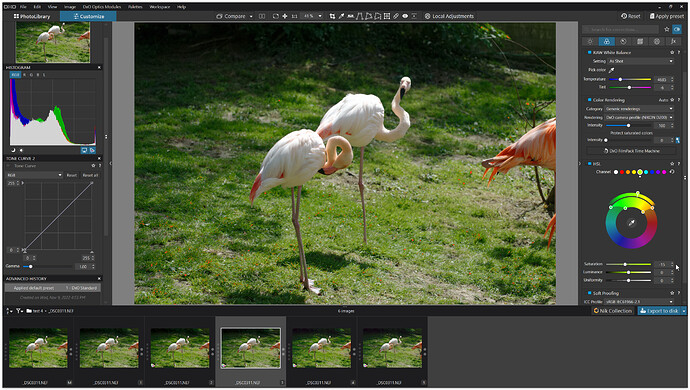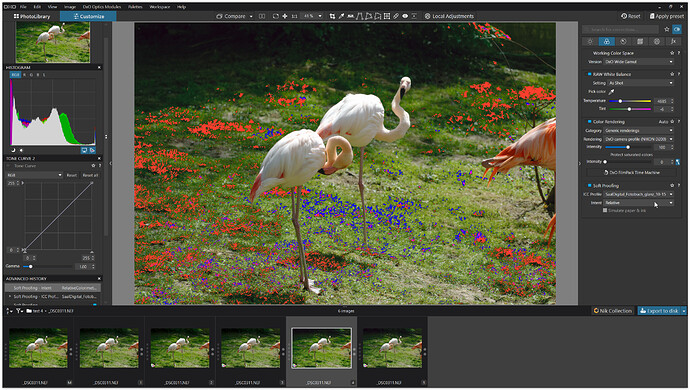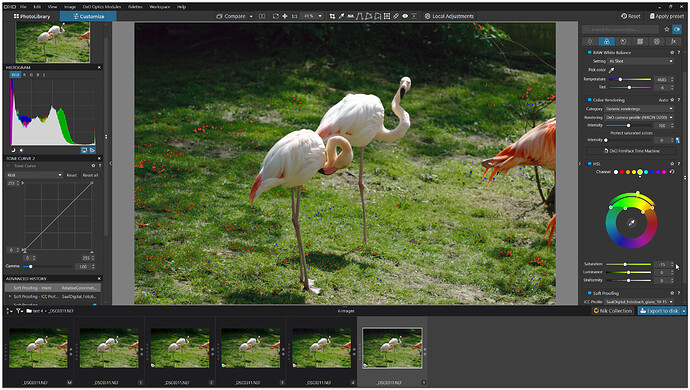This statement
triggered me to do experiments …
some comparisons
(w/ sRGB screen, PL6 WG)
→ used an old pic with a ‘casual’ scene
_DSC0311.NEF (15,9 MB)
_DSC0311.xmp (8,0 KB)
_DSC0311.NEF.dop (61,7 KB)
→ RGB paper profile
SaalDigital_Fotobuch_glanz_10-15.zip (971,4 KB)
.
1.
colour spaces of present & affordable monitors
- black = AdobeRGB
green = DCI-P3
yellow = sRGB
.
2.
different coverage of sRGB (display profile & export to print service) and RGB paper profile
- black = ProPhoto → here representing anything in Wide Gamut
- green = RGB paper profile for a photobook by SaalDigital
- yellow = sRGB
.
3.
the pic with DxO Standard preset
.
4.
same as 3., with Monitor gamut warning ON (blue overlay)
(shows the out-of-gamut area for the sRGB monitor)
.
5.
same as 4., but some saturation for green reduced
(reduced until the warning was almost off – and the pic in-gamut)
.
6.
same as 4., softproof to sRGB, with Destination gamut warning ON (red overlay)
(–> toggle between Monitor and Destination gamut warning – they cover the same area)
.
7.
same as 6., with some saturation for green reduced
(turns both warnings almost off)
.
8.
same as 4., softproof to paper profile, with Destination gamut warning ON (red overlay)
(–> toggle between Monitor and Destination gamut warning – the coverage differs !!)
- more red overlay than in 6. = less colours than in sRGB
- less red overlay than in 6. = more colours than in sRGB
.
9.
same as 8., with some saturation for green reduced
- more red overlay than in 7. = less colours than in sRGB
.
general note
-
With softproof & export to sRGB IEC61996-2.1, DCI-P3 & AdobeRGB
& ProPhotoRGB
DxO uses its ‘automatic’ rendering (“PSCA” → the initial graphic).
The visible rendering intent (perceptual / relative colorimetric) is not used. -
With softproof & export to paper profiles DxO uses
the rendering intent perceptual (by default) or relative colorimetric.
→ see here … for further info
